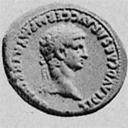0288 The Annihilation of the German Numismatic Market during the Nazi Era, with Some Observations on the Countermeasures Adopted by Jewish Ancient Coin Dealers
Identifiers (Article)
Abstract
This paper shows that the Nazi persecution of Jewish coin dealers and collectors prominent in Germany’s economic and cultural life resulted in a weakening of the domestic numismatic market. The failure of Nazi cultural-economic policy is illustrated by a study of the trade in ancient coins. While the Nazi authorities (e.g., Foreign Exchange Offices, Customs) failed to prevent the export of numismatic assets, the most prominent Jewish dealers were able to reestablish their businesses abroad, especially in Switzerland as the new international trading center for ancient coins. Their non-Jewish German colleagues, in turn, had great difficulty filling the gaps in the supply of ancient coins in the German Reich left by the Jews who had emigrated or fled.
Statistics


License

This work is licensed under a Creative Commons Attribution-NonCommercial-NoDerivatives 4.0 International License.



